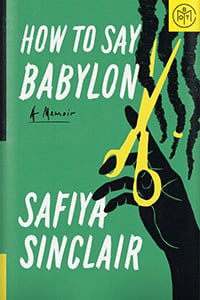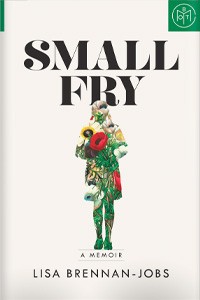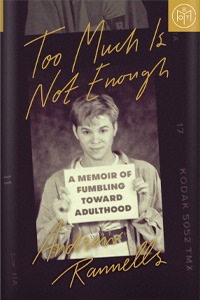

Memoir
Group
Debut
by Christie Tate
View audiobook
Quick take
A skeptical woman seeks help from an unconventional therapist in this no-holds-barred memoir about group therapy.
Good to know
Unlikeable narrator
Buzzy
Snarky
Writer’s life
Synopsis
Christie Tate had just been named the top student in her law school class and finally had her eating disorder under control. Why then was she driving through Chicago fantasizing about her own death? Why was she envisioning putting an end to the isolation and sadness that still plagued her in spite of her achievements?
Enter Dr. Rosen, a therapist who calmly assures her that if she joins one of his psychotherapy groups, he can transform her life. All she has to do is show up and be honest. About everything—her eating habits, childhood, sexual history, etc. Christie is skeptical, insisting that that she is defective, beyond cure. But Dr. Rosen issues a nine-word prescription that will change everything: “You don’t need a cure, you need a witness.
So begins her entry into the strange, terrifying, and ultimately life-changing world of group therapy. Christie is initially put off by Dr. Rosen’s outlandish directives, but as her defenses break down and she comes to trust Dr. Rosen and to depend on the sessions and the prescribed nightly phone calls with various group members, she begins to understand what it means to connect.
Read a sample
Get an early look from the first pages of Group.
Why I love it
Lisa Taddeo
Author, Three Women
In my twenties I suffered a great deal of loss—my parents to car accidents and cancer and almost all my other relatives in the space of a few years. I saw several therapists, but none of them helped. It’s taken me years to understand that those doctors couldn’t help in a meaningful way because they hadn’t experienced my specific variety of pain. In fact, the only times I felt unalone were around other people who’d suffered in the ways that I had. When I read Christie Tate’s Group, I traveled back to that dark period—but in an utterly different way. I saw what might have been, had I found my own community of supporters.
Tate describes hitting rock bottom before meeting Dr. Rosen, a nontraditional therapist who leads an unconventional psychotherapy group. At first resistant to Rosen’s unusual approach—mandatory nightly phone calls, exposed guts, and the expectation that members keep no secrets about themselves or each other—over time, Tate finds that her experiences in that room help her not only heal, but thrum with life.
Group is not a compendium of therapeutic niceties. It is not a manual or a simple memoir. It is, rather, a daring admission of how the will to live can come from the most unexpected of places. It is not for the reader to judge the eccentric (and often wildly entertaining) methods of Dr. Rosen and their reverberations for the group, but to hear that we all suffer, and we all claw to get out of holes. For me, this book is an antidote and a consent—whatever place you find salvation, that’s the right place to be.





















